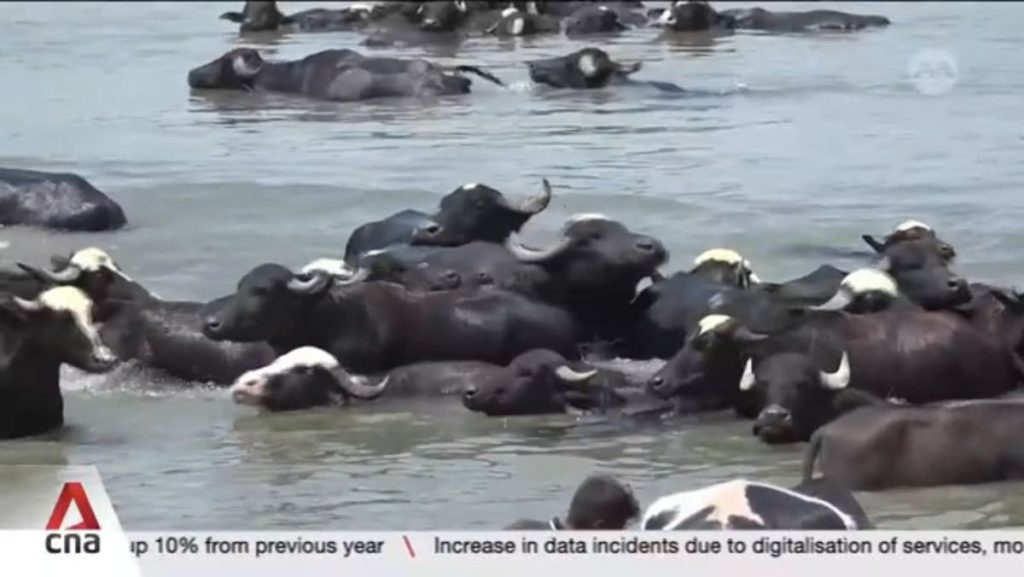Climate change is posing a significant challenge to farmers in Iraq, with rising temperatures leading to decreased crop yields. This is particularly problematic in a country like Iraq, where agriculture is a vital part of the economy. The impact of climate change on farmers is likely to hinder the country’s ability to recover from years of conflict and instability. Aid agencies are warning that the climate crisis could become a major barrier to recovery efforts in Iraq, as farmers struggle to adapt to the changing conditions. In Hillah, central Iraq, farmers are already feeling the effects of climate change, with crop yields diminishing in recent years.
Iraq’s farmers are facing a double whammy of challenges as they try to cope with the impacts of climate change. Not only are temperatures rising, but water scarcity is also becoming a major issue in the country. With rivers drying up and water sources becoming increasingly polluted, farmers are finding it more difficult to irrigate their crops. This is further exacerbating the problem of decreased crop yields, as farmers struggle to provide their crops with the water they need to thrive. The combination of rising temperatures and water scarcity is putting additional pressure on Iraq’s already struggling agricultural sector.
The impact of climate change is not limited to Iraq’s farmers; the entire country is feeling the effects of the changing climate. Extreme weather events, such as droughts and floods, are becoming more frequent, putting further strain on the country’s infrastructure and resources. In addition to the immediate impacts on agriculture, climate change is also causing longer-term problems for Iraq, such as desertification and loss of biodiversity. These issues will only worsen if action is not taken to mitigate the effects of climate change and adapt to the changing conditions.
In order to address the challenges posed by climate change, Iraq will need to take significant steps to adapt to the changing conditions and mitigate the impacts of global warming. This will require investment in sustainable agriculture practices, as well as improved water management systems to cope with water scarcity. Additionally, the government will need to work with international partners and aid agencies to develop strategies for building resilience in the face of climate change. By taking proactive measures to address the impacts of climate change, Iraq can work towards a more sustainable future for its farmers and its population as a whole.
Despite the challenges posed by climate change, there are opportunities for Iraq to build a more resilient and sustainable agricultural sector. By investing in climate-smart agriculture practices, such as drip irrigation and crop rotation, farmers can mitigate the impacts of rising temperatures and water scarcity. Additionally, sustainable land management practices can help to reduce the risk of desertification and preserve biodiversity in the country. By working together with international partners and aid agencies, Iraq can develop strategies to build resilience in the face of climate change and ensure a more secure future for its farmers and its population as a whole.
Ultimately, the impact of climate change on Iraq’s farmers is a stark reminder of the urgent need to address the global climate crisis. As temperatures continue to rise and extreme weather events become more frequent, countries like Iraq will be on the front lines of the impacts of climate change. By taking proactive measures to adapt to the changing conditions and mitigate the impacts of global warming, Iraq can work towards a more sustainable future for its farmers and its population. With the right investments in sustainable agriculture practices and water management systems, Iraq can build resilience in the face of climate change and ensure a more secure future for all its citizens.


